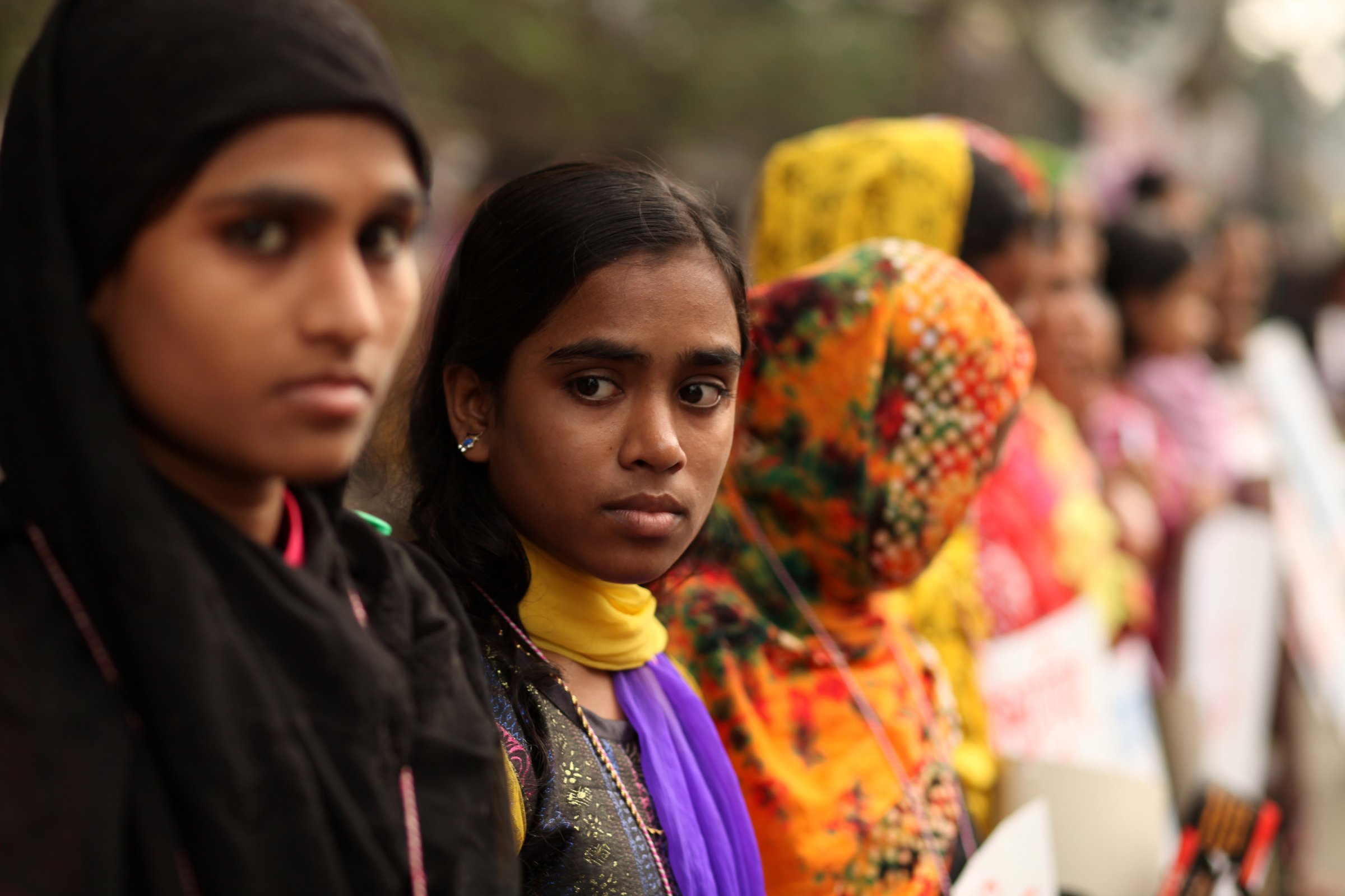
Three taboo subjects of polite conversation—sex, religion and politics—will converge in Salt Lake City on Thursday. From around the world and from almost every world faith, thousands of women will gather at a convening historic in size, intent, global composition and religious diversity: the Inaugural Women’s Assembly at the Parliament of the World’s Religions, the oldest and largest interfaith event in the world.
At the center of this landmark gathering will be the forbidden third rail of religion: the dignity and equal rights of women.
Faith leaders and followers from 50 religions across 80 countries are making this issue a primary focus at the first parliament to take place in the U.S. in more than 20 years. Alongside female leaders from the global stage, thanks to scholarship support, will also be women’s voices that are rarely heard: Dalit feminists, African environmentalists, Israeli and Palestinian peace activists, Indigenous Elders, Episcopal priests, Wiccan priestesses, green nuns and Maori-Mormon womanists from New Zealand.
Religion has historically been “hands off” on the issue of rights for women. For thousands of years, the idea of male superiority has perpetuated violations of women’s essential dignity and safety, an archaic view that many religions and many religious leaders and institutions continue to this day. The consequence for women is not just soul-damaging discrimination; it’s deadly.
Worldwide, one in three women has been raped, beaten or violently assaulted (in the U.S. that number is a dismal one in four.) About 700 million women were little girls when they were married. An estimated 140 million have suffered some form of female genital mutilation.
Religion has played a role in imposing constraints on women’s basic freedoms to be safe, healthy and live free of fear. It’s affected how they control their bodies, move about freely, own property, choose to marry or obtain a divorce, retain custody of their children, have their testimony given equal weight in court, receive an education, or simply work. Brutal injustices have been justified by misinterpreted or selectively edited scriptures, texts and teachings.
Though public opinion is moving in the right direction, the door to formal leadership remains closed in many traditions, and injustice remains dictated by men who claim their actions are backed by faith. That means women are often systematically excluded from decision-making that influences and determines the quality of their lives.
The dignity, safety and equality of women is the global human rights struggle of our time. The world’s religions can no longer contribute to or allow the denigration of half of humanity. To do so is to break faith.
Women, and men, of faith and spirit are gathering in Salt Lake City to fix this broken moral compass and call upon the world’s religions to stop the deprivation and violence against women and girls; to stop harmful teachings and practices that justify discrimination and abuse; and to ensure that women are fully involved in decision-making within religions.
In 1948, the U.N. Universal Declaration of Human Rights called for the equal rights of men and women. This week, we’re calling upon the world’s religions to pursue the messages of dignity and equality that the world’s faiths claim.
Religious leaders have played critical roles in the social justice issues of their times. It is past time for faith leaders to make it their moral responsibility to ensure that women who risk being ostracized, abused or killed if they speak up or act to challenge their abusers, will not be alone.
I am joining them because I know the urgent and deadly crises of today’s world cannot be solved without the contribution of half of humanity. Humankind is interconnected and interdependent, and it is impossible to achieve the healthy, sustainable, just and peaceful world our very survival requires without the full and free participation of all women.
Indeed, all over the world we can see that when women are uplifted, their children benefit, their communities thrive, stability follows, peace is more secure, and the future opens to the promises and possibilities of rebirth.
Phyllis Curott is Vice Chair of the Parliament of the World’s Religions, drafter of its Declaration on the Dignity and Human Rights of Women, and the force behind the Inaugural Women’s Assembly. She is also an attorney, popular author, one of America’s first public Wiccan High Priestesses, and author of Book of Shadows.
More Must-Reads from TIME
- Why Trump’s Message Worked on Latino Men
- What Trump’s Win Could Mean for Housing
- The 100 Must-Read Books of 2024
- Sleep Doctors Share the 1 Tip That’s Changed Their Lives
- Column: Let’s Bring Back Romance
- What It’s Like to Have Long COVID As a Kid
- FX’s Say Nothing Is the Must-Watch Political Thriller of 2024
- Merle Bombardieri Is Helping People Make the Baby Decision
Contact us at letters@time.com